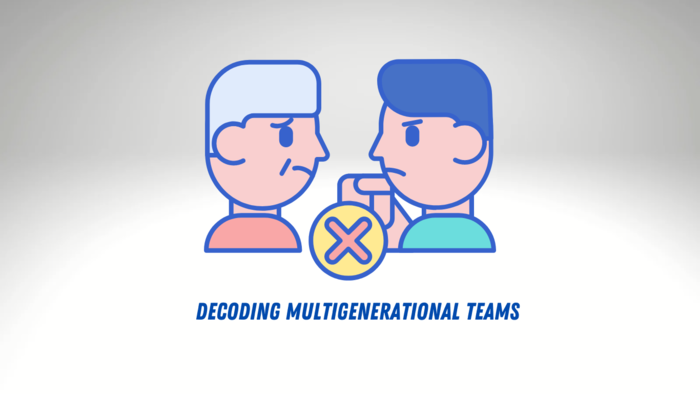Addressing Mental Health in the Workplace
By Marion Davis
One consistent theme within creating an inclusive, diverse work environment is that employers can grow in awareness of the many ways to support workers.
Mental health support in the workplace is a topic not only applicable to those employees with mental disorders but all employees experiencing stress due to the constant changes in today’s world.
The Universal Benefits of Normalizing Mental Healthcare
Normalizing mental healthcare within the company helps create a culture of inclusivity. This normalization combats stigmas surrounding mental illness symptoms.
Recognize the Effects of the Pandemic on Mental Health
As 2022 comes to an end, the years-long global pandemic has thus far caused PTSD-like symptoms in approximately 29.5% of people. The uncertainty that has rocked the world has resulted in employees experiencing high levels of anxiety, depression, and burnout.
These numbers indicate that people who previously identified as not having mental health symptoms now face the need for trauma-informed solutions due to the pandemic.
Offer Diverse Employer-Sponsored Programs and Insurance Plans
One study published in 2022 found that employees participating in an employer-sponsored workplace mental health program had significant self-reported improvement in symptoms of anxiety and depression. The companies involved in the study noted a 24% increase in productivity. The study does note that more research needs to be conducted on how the needs of employees with mental illness can be better met.
As always, there is diversity within diversity.
Employees with mental illnesses like generalized anxiety disorder versus pandemic-induced feelings of anxiety may feel more comfortable seeing a psychologist and psychiatrist rather than seeking therapy or involvement in a workplace program.
This is where providing multiple options comes into play. A workplace culture that promotes mental health support is the first step. The next step is to ensure comprehensive employer-sponsored insurance coverage for a diverse range of mental health needs.
Encourage–But Don’t Enforce Mental Healthcare
When normalizing mental healthcare and providing coverage in company benefits for a wide range of psychotherapeutic options, organizations should respect all decisions regarding how or if an employee seeks care.
In some cases, people may choose not to seek care due to past traumatizing events within the healthcare system. There is a concept termed potentially harmful therapy (PHT) where the encounter harms rather than helps the client. This PHT often occurs due to the field of psychotherapy consisting predominantly of white, able-bodied practitioners.
A Black employee may wish to avoid therapy as she cannot find a local Black therapist and has encountered racism from white therapists in the past. A disabled employee may wish to avoid therapy for similar reasons, having been told as an ambulatory wheelchair user that the therapist saw him walk once so he now must go on a long walk every day as homework.
Organizations should be respectful of all approaches to self-care and mental health care, recognizing that employees make different choices based on their lived experiences and the resources available.
How to Promote an Emphasis on Mental Health in the Workplace
Employers must take active steps toward promoting mental healthcare and well-being in the workplace.
Talk about Mental Health
Discussing mental health in the workplace can have immense benefits for an organization, resulting in improved job performance and productivity and higher levels of employee retention.
The American Psychological Association notes that 87% of American adults believe that mental health disorders should not be stigmatized. However, having open conversations on mental health can still be uncomfortable within the workplace.
To promote discussions, organizations should avoid singling out any employees. For instance, no employees should feel that they must share and educate others on their mental illness.
Instead, companies can bring in speakers on mental health in the workplace to provide informative lectures. When contracting speakers, events coordinators should ensure that any individuals provide actual representation. As an example, bipolar disorder is one of the most highly stigmatized mental illnesses. Rather than hiring a non-disabled motivational speaker who might unintentionally invalidate the experiences of employees, organizations can seek to hire speakers with lived experience with bipolar disorder who can combat the stigma while opening the floor for further discussions on mental illness.
Encourage Time Off for Emotional Well-Being
All too often, employees experience guilt when using vacation days for their mental health. This guilt may come from within or from other individuals within the organization.
To support employees in overcoming these feelings of guilt, companies can provide incentives for employees to take time off. Some companies such as Full Contact Inc, a tech company, have been widely recognized for effective time-off models that result in happier employees. Full Contact Inc. offers employees a $7,500 paid vacation with the single requirement that employees completely disconnect from work during this vacation.
Create Individualized Workplace Wellness Initiatives
Many workplace programs for wellness prioritize physical fitness and provide incentives based on related metrics. This universal push for physical exercise is insensitive and not beneficial or practical for a diverse group of employees.
Instead, a better alternative would be to allow employees to set their own goals.
Interestingly, one study found that organization-set goals cause employees higher levels of anxiety and lower levels of enthusiasm than when employees are allowed to set their own goals. This means that organizations attempting to create workplace wellness programs by handing out gym memberships and offering gift cards based on gym attendance could actually reduce employees’ level of mental well-being.
Personalizing incentive programs around what wellness means to each employee shows that an organization recognizes and celebrates individuality.
Final Thoughts
Hiring a diverse workforce has the advantage of making employers more aware of the many ways they can support their employees. Listening to individual experiences and needs is the most crucial aspect of developing any wellness programs or offering company benefits. Employers need to ensure that the resources they provide align with what employees have stated is helpful for them. Only then–when employees’ voices are heard–do mental health resources in the organization truly become meaningful and supportive.
Marion Davis is a contributing writer at EmployDiversityNetwork.com. She is a disabled DEIA consultant and writes on the value of diversity and inclusion across multiple industries, specifically as relates to disability and intersectionality.













